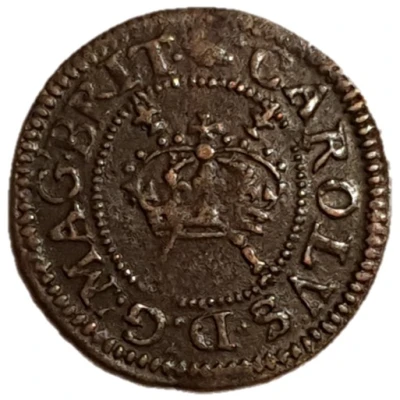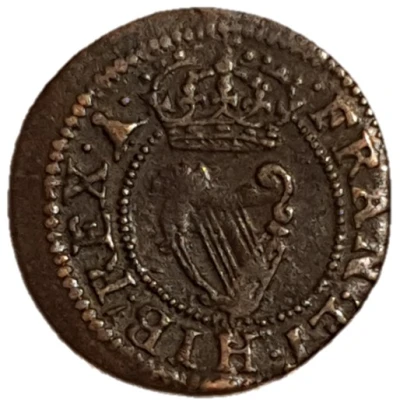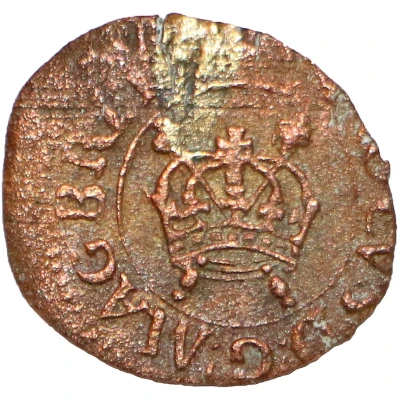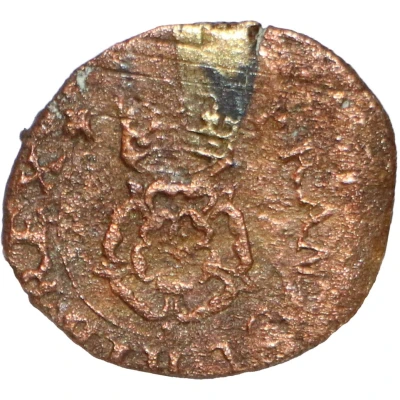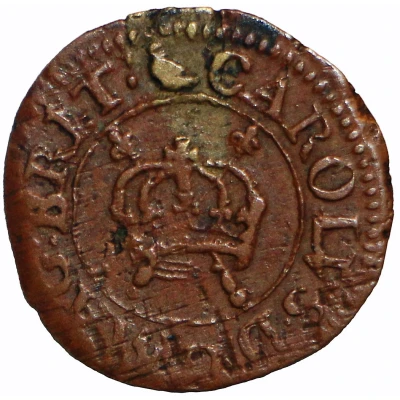
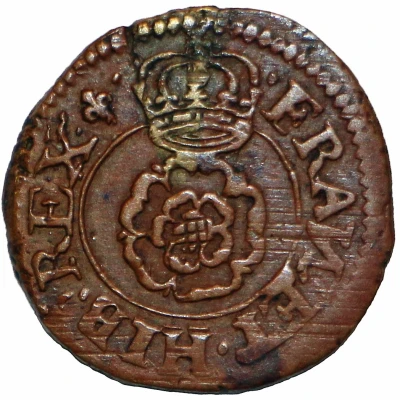

© John Conduitt (CC BY-SA)
1 Farthing - Charles I Rose issue; mules of types 1 and 2 or 3 ND
1636 year| Copper (with brass wedge) | 1.25 g | 14 mm |
| Issuer | England (United Kingdom, British Overseas Territories and Crown Dependencies) |
|---|---|
| King | Charles I (1625-1649) |
| Type | Token |
| Year | 1636 |
| Value | 1 Farthing (1⁄960) |
| Currency | Pound sterling (1158-1970) |
| Composition | Copper (with brass wedge) |
| Weight | 1.25 g |
| Diameter | 14 mm |
| Shape | Round (irregular) |
| Technique | Roller milled |
| Orientation | Medal alignment ↑↑ |
| Demonetized | Yes |
| Updated | 2024-10-08 |
| Numista | N#355774 |
|---|---|
| Rarity index | 94% |
Reverse
Small, boxy, double-arched crown (Type 2) or large double-arched crown with pointed sides and 5 square jewels (Type 3); double rose; privy mark at end of legend followed by a stop.
Script: Latin
Lettering: (.)FRAN! ET. HIB! REX.
Unabridged legend: Franciae Et Hiberniae Rex
Translation: King of France and Ireland
Comment
Type 1/2 privy marks:- lis both sides and error legend HIBER;
- lis on reverse, N reversed in FRAN;
- martlet on obverse, lis on reverse, N reversed in FRAN.
Type 1/3 privy marks are unclear.
Interesting fact
One interesting fact about the Token 1 Farthing - Charles I (Rose issue; mules of types 1 and 2 or 3) ND (1636) from England (United Kingdom, British Overseas Territories and Crown Dependencies) made of Copper (with brass wedge) weighing 1.25 g is that it was issued during a time of great economic turmoil in England. The coin was minted in 1636, during the reign of King Charles I, and was part of a series of emergency issues that were created to address a shortage of small change in circulation. The coin's unique design, featuring a rose on the obverse and a crown on the reverse, was meant to signify the king's authority and legitimacy. Despite its humble denomination, the Token 1 Farthing is now highly sought after by collectors due to its historical significance and rarity.
